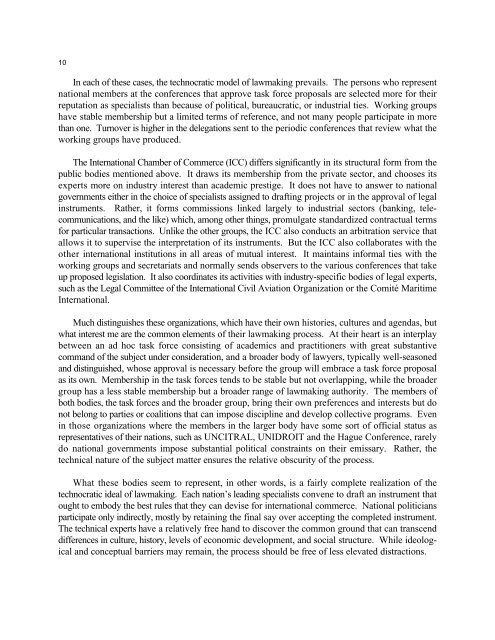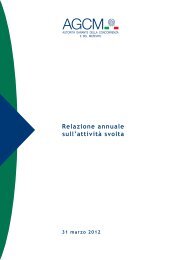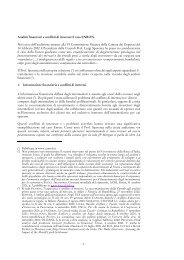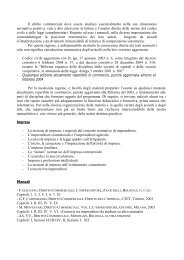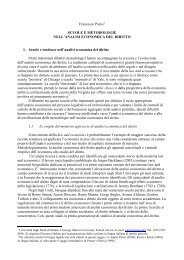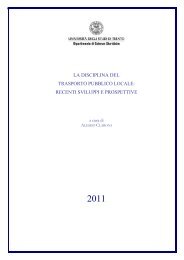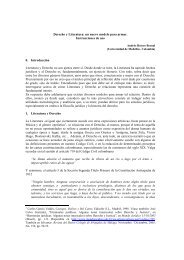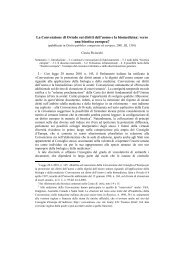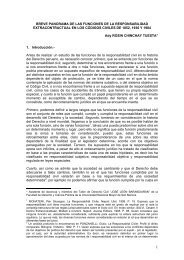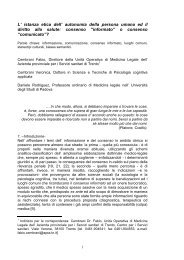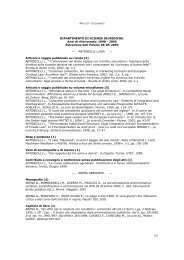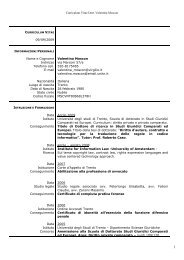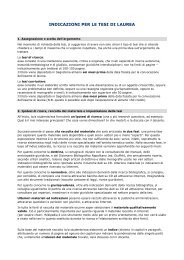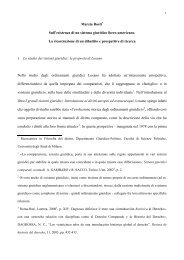The Futility of Unification and Harmonization in International ...
The Futility of Unification and Harmonization in International ...
The Futility of Unification and Harmonization in International ...
Create successful ePaper yourself
Turn your PDF publications into a flip-book with our unique Google optimized e-Paper software.
10In each <strong>of</strong> these cases, the technocratic model <strong>of</strong> lawmak<strong>in</strong>g prevails. <strong>The</strong> persons who representnational members at the conferences that approve task force proposals are selected more for theirreputation as specialists than because <strong>of</strong> political, bureaucratic, or <strong>in</strong>dustrial ties. Work<strong>in</strong>g groupshave stable membership but a limited terms <strong>of</strong> reference, <strong>and</strong> not many people participate <strong>in</strong> morethan one. Turnover is higher <strong>in</strong> the delegations sent to the periodic conferences that review what thework<strong>in</strong>g groups have produced.<strong>The</strong> <strong>International</strong> Chamber <strong>of</strong> Commerce (ICC) differs significantly <strong>in</strong> its structural form from thepublic bodies mentioned above. It draws its membership from the private sector, <strong>and</strong> chooses itsexperts more on <strong>in</strong>dustry <strong>in</strong>terest than academic prestige. It does not have to answer to nationalgovernments either <strong>in</strong> the choice <strong>of</strong> specialists assigned to draft<strong>in</strong>g projects or <strong>in</strong> the approval <strong>of</strong> legal<strong>in</strong>struments. Rather, it forms commissions l<strong>in</strong>ked largely to <strong>in</strong>dustrial sectors (bank<strong>in</strong>g, telecommunications,<strong>and</strong> the like) which, among other th<strong>in</strong>gs, promulgate st<strong>and</strong>ardized contractual termsfor particular transactions. Unlike the other groups, the ICC also conducts an arbitration service thatallows it to supervise the <strong>in</strong>terpretation <strong>of</strong> its <strong>in</strong>struments. But the ICC also collaborates with theother <strong>in</strong>ternational <strong>in</strong>stitutions <strong>in</strong> all areas <strong>of</strong> mutual <strong>in</strong>terest. It ma<strong>in</strong>ta<strong>in</strong>s <strong>in</strong>formal ties with thework<strong>in</strong>g groups <strong>and</strong> secretariats <strong>and</strong> normally sends observers to the various conferences that takeup proposed legislation. It also coord<strong>in</strong>ates its activities with <strong>in</strong>dustry-specific bodies <strong>of</strong> legal experts,such as the Legal Committee <strong>of</strong> the <strong>International</strong> Civil Aviation Organization or the Comité Maritime<strong>International</strong>.Much dist<strong>in</strong>guishes these organizations, which have their own histories, cultures <strong>and</strong> agendas, butwhat <strong>in</strong>terest me are the common elements <strong>of</strong> their lawmak<strong>in</strong>g process. At their heart is an <strong>in</strong>terplaybetween an ad hoc task force consist<strong>in</strong>g <strong>of</strong> academics <strong>and</strong> practitioners with great substantivecomm<strong>and</strong> <strong>of</strong> the subject under consideration, <strong>and</strong> a broader body <strong>of</strong> lawyers, typically well-seasoned<strong>and</strong> dist<strong>in</strong>guished, whose approval is necessary before the group will embrace a task force proposalas its own. Membership <strong>in</strong> the task forces tends to be stable but not overlapp<strong>in</strong>g, while the broadergroup has a less stable membership but a broader range <strong>of</strong> lawmak<strong>in</strong>g authority. <strong>The</strong> members <strong>of</strong>both bodies, the task forces <strong>and</strong> the broader group, br<strong>in</strong>g their own preferences <strong>and</strong> <strong>in</strong>terests but donot belong to parties or coalitions that can impose discipl<strong>in</strong>e <strong>and</strong> develop collective programs. Even<strong>in</strong> those organizations where the members <strong>in</strong> the larger body have some sort <strong>of</strong> <strong>of</strong>ficial status asrepresentatives <strong>of</strong> their nations, such as UNCITRAL, UNIDROIT <strong>and</strong> the Hague Conference, rarelydo national governments impose substantial political constra<strong>in</strong>ts on their emissary. Rather, thetechnical nature <strong>of</strong> the subject matter ensures the relative obscurity <strong>of</strong> the process.What these bodies seem to represent, <strong>in</strong> other words, is a fairly complete realization <strong>of</strong> thetechnocratic ideal <strong>of</strong> lawmak<strong>in</strong>g. Each nation’s lead<strong>in</strong>g specialists convene to draft an <strong>in</strong>strument thatought to embody the best rules that they can devise for <strong>in</strong>ternational commerce. National politiciansparticipate only <strong>in</strong>directly, mostly by reta<strong>in</strong><strong>in</strong>g the f<strong>in</strong>al say over accept<strong>in</strong>g the completed <strong>in</strong>strument.<strong>The</strong> technical experts have a relatively free h<strong>and</strong> to discover the common ground that can transcenddifferences <strong>in</strong> culture, history, levels <strong>of</strong> economic development, <strong>and</strong> social structure. While ideological<strong>and</strong> conceptual barriers may rema<strong>in</strong>, the process should be free <strong>of</strong> less elevated distractions.


